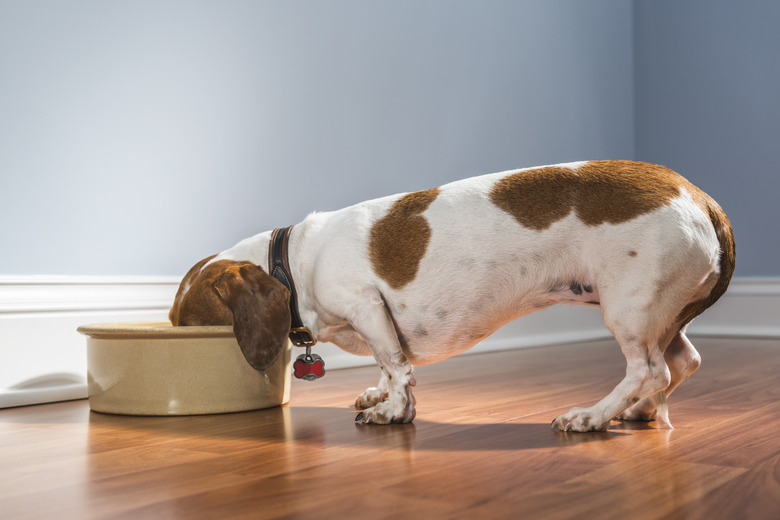How To Make Dog Food For A Daschund
The adorable dachshund is one of those breeds that could get into big trouble fast if they become overweight. It's hard to resist those soulful eyes imploring us for just one more treat, but resist we must.
The dachshund's most distinctive feature, its long back, can be strained with even a little extra weight. Strain can lead to slipped and ruptured discs and a life of chronic pain for your sweet little sausage dog.
Dachshund dietary needs
Dachshund dietary needs
One way to make sure that your dachshund's nutritional needs are being met, and control the calories he's ingesting, is to make his food yourself. If you'd like to make food for your dachshund, you'll need to learn about canine nutrition and familiarize yourself with small dogs' dietary needs. A lot of people think dogs are strictly meat eaters, but they're not.
While meat protein should make up a significant portion of your dog's diet, he also needs the nutrients that fruits, vegetables, and grains can provide. A good canine diet consists of a balance of protein, fats, carbs, vitamins, and minerals. High-quality commercial dog foods include all of these in appropriate ratios.
If you want to prepare homemade dog food for your dachshund, you'll need to use a dachshund food recipe that follows these general guidelines: 40 percent protein, 10 percent carbohydrates, and 50 percent vegetables. Some fat, fatty acids, and calcium should also be included.
First things first
First things first
Before you start making food for your dachshund, talk to your vet. Vets have access to all of the latest information and research on canine nutrition. Yours should be able to suggest exact guidelines for you to follow. She'll also be able to recommend specific foods to include in your recipes that will meet those guidelines.
Any recommendations she makes will take into consideration a dachshund's nutritional needs, and specifically your dachshund's dietary needs. Small dogs have to take in more calories per pound of body weight than big dogs. This is primarily due to their higher metabolic rates.
Your vet will also stress the importance of including calcium and phosphorus to help support your wiener dog's relatively small limbs and that extra long spine. Once you have settled on a dachshund food recipe, keep in mind that small dogs need small pieces of food. Cut up any big chunks that could be a choking hazard.
Stick to the recipe
Stick to the recipe
Once you and your vet have worked out your dachshund's food recipe, don't stray from it. One common mistake people make when cooking for their dog is that they start eliminating or substituting ingredients.
Tufts University's veterinary school has a nutrition service that designs recipes for clients with dogs that have particular nutritional needs due to illnesses and allergies. They conducted a study to find out how well their recipes were being followed. Only 13 percent of dog owners were sticking to the recipes they had been given. And that's not all; 62 percent stated that they had not made any changes, when, in fact, they did!
Perhaps the changes were minor ones made over time and forgotten, but they added up. Even seemingly insignificant tweaks here and there can dramatically alter a recipe's nutritional content.
Homemade dog food for dachshunds
Homemade dog food for dachshunds
Making homemade food for your dachshund doesn't have to take long. Most recipes take less than 30 minutes to prepare from start to finish. You can make enough for a couple of weeks at a time and freeze part of it. Most homemade dog food for dachshunds will keep for up to five days in the refrigerator.
Making your own dog food is a feel-good experience for all concerned. You'll know exactly what's going into your sausage dog's tummy, and you'll love watching her gobble up all of that homemade goodness.
The dachshund's life span is typically 12 to 16 years. Making your own healthy, nutrition-packed dog food can help make those years happy and healthy ones.
References
- American Kennel Club: Best Dog Food: Choosing What's Right For Your Dog
- American Kennel Club: Best Dog Food for Small Breeds
- American Kennel Club: Dachshund
- Canine Journal: Kiss Kibble Goodbye: Homemade Dog Food Recipes
- Eukanuba: Breed Specific Dachshund Dog Food
- Tufts University, Cummings School of Veterinary Medicine: Cooking Up Trouble: Common Home Cooking Mistakes
